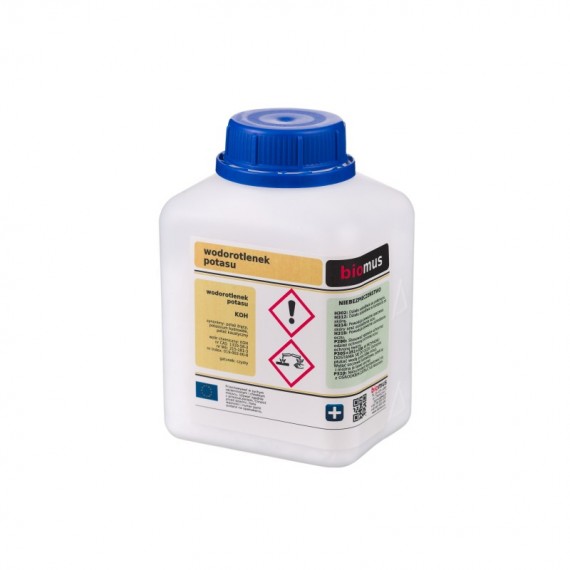Potassium hydroxide
Potassium hydroxide
Potassium hydroxide (caustic potash), KOH - an inorganic chemical compound from the group of hydroxides, one of the strongest bases.
Under standard conditions, potassium hydroxide is a white solid. As a chemical reagent, it is usually produced in the form of brittle, crystalline, soft flakes or granules with a water content of approx. 15%. It has strong hygroscopic properties, larger than sodium hydroxide. It dissolves very well in water; the dissolution process is strongly exothermic. The solution, called potassium lye, is strongly alkaline. Potassium hydroxide and its aqueous solution absorb carbon dioxide from the air to form potassium carbonate, therefore it should be stored in sealed containers. It is highly corrosive, it can cause serious burns. If swallowed, causes burns in the esophagus and stomach, it may cause perforation.
Species: clean
Specification
Name: Potassium hydroxide
Synonyms: caustic potassium, caustic potassium, potassium hydroxide
Species: clean
Purity: min 90%
Chemical formula: KOH
Application
• as a drying and bleaching agent
• for absorbing carbon dioxide
• HHO - ideal for HHO hydrogen generators (instructions on the website: http://aleegrospecial.pl.tl/INSTRUKCJA-HHO.htm)
• in chemistry as a strong principle
• for the preparation of other potassium compounds, e.g. potassium salts
• for making soft potassium soaps
• in lithography for making dies
• as an electrolyte, eg in nickel-cadmium batteries
• for the decomposition of the human body during resomnia
• an aqueous 5% solution of potassium hydroxide is used to identify the rhubarb mullet (the pores of the mushroom turn purple)
• for the texture of silicon wafers















